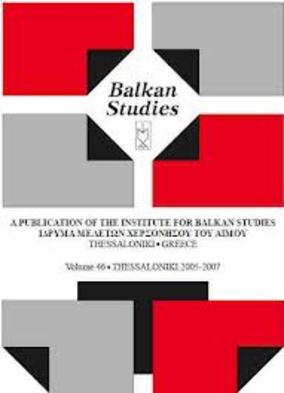Greek merchants in the eighteenth century Jaszkunsag
Part of : Balkan studies : biannual publication of the Institute for Balkan Studies ; Vol.30, No.2, 1989, pages 261-289
Issue:
Pages:
261-289
Section Title:
Articles
Author:
Abstract:
The Greeks in Hungary played an important role in the economic and commercial life of the country, especially in the eighteenth century. No comprehensivestudy, however, has been made on their activity and history. Previouspapers mainly dealt with the history of territories with bigger communitiesand parishes.This paper tries to describe the main features of the history of the Greekssettled in the area of Jâszkunsâg, a territory known less for its Greek inhabitants.The Greeks of the Jészkunsâg found themselves under special economicand social circumstances. The Jâszkunsâg, situated between the rivers Danubeand Tisza, did not form a unified territory, it consisted of Jâszsâg (Jazygia),the Kiskunsâg (Little Cumania, in South Central Hungary) and Nagykunsäg(Great Cumania, in Eastern Hungary). These territories were joined duringthe Turkish supremacy into one administrative unit and Mszberény was thecommon seat of all three. Hungarian kings granted the Jazygians and theCumanians important privileges when they settled here in the 13th and 14thcenturies respectively, but on the other hand their obligations increased. Thus,they developed a relatively closed community and were not very willing toreceive foreigners. However, the Balkan merchants arriving in the 17th and18th centuries were welcomed. In other parts of the country, especially wherethe bourgeoisie was predominant, the reception of the Greeks was notunanimously favourable. On the contrary, in the Jâszkunsâg we can traceno sign of refusal. Here, there was lack of merchants and the Greeks couldwork without competition until the appearance of the Jews. The local inhabitantsdealt only with agriculture and animal breading. This was well complementedby the trading activity of the Greek merchants who often lent moneyto the residents. The documents in the Szolnog Megyei Levéltar (Archivesof the Szolnok Country) allow us to conclude that the assimilation of theGreeks was much easier here than in any other part of Hungary.The loyalty oath edict of 1774 was decisive for the Greeks in the Jâszkunsâg,but as the authorities were very tolerant, its full application took along time. Unlike in other parts of the country, the immigration did not stopafter the loyalty oath edict; Greeks settled here as late as the 1790’s.This paper tries to show the duality of the state of the Greeks settled inthis region. While they tried to adjust themselves to their new country andadopt the local customs, they had a very strong tendency to preserve theirnational awareness, as well as their religion, showing thus their adherence totheir native land. An outstanding Greek scholar in Hungary, Gyôrgy Zavirâsz,played an important role in keeping alive the national awareness of the Greeks1.The remembrance of the Greeks in the Jâszkunsâg is preserved not only in the archival documents, but also in a number of beautiful sepulchres (inKarcag, Jaszberény and Jäszladäny), in cemeteries and in the extremely beautiful Greek-Orthodox church in Karcag, which has been recently declared a public monument.
Subject:
Subject (LC):
Keywords:
Εμπόριο στην Ουγγαρία




